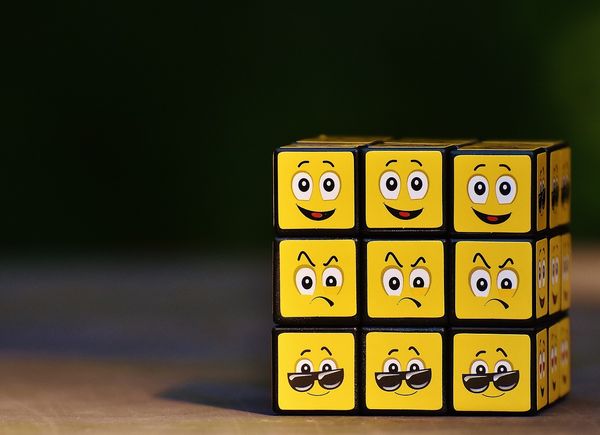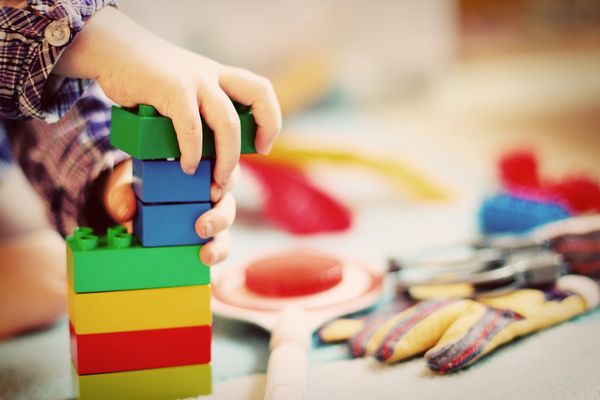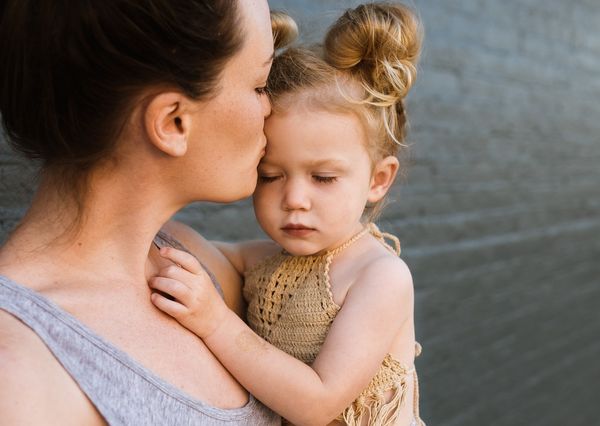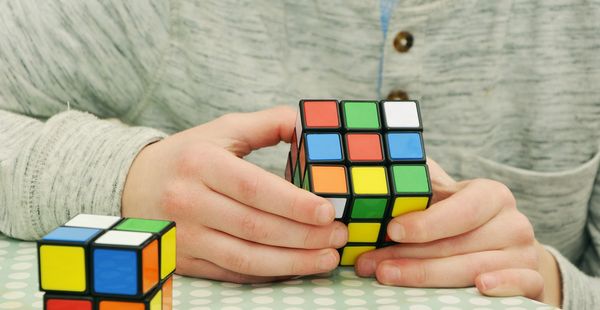Does your child suddenly become aggressive?
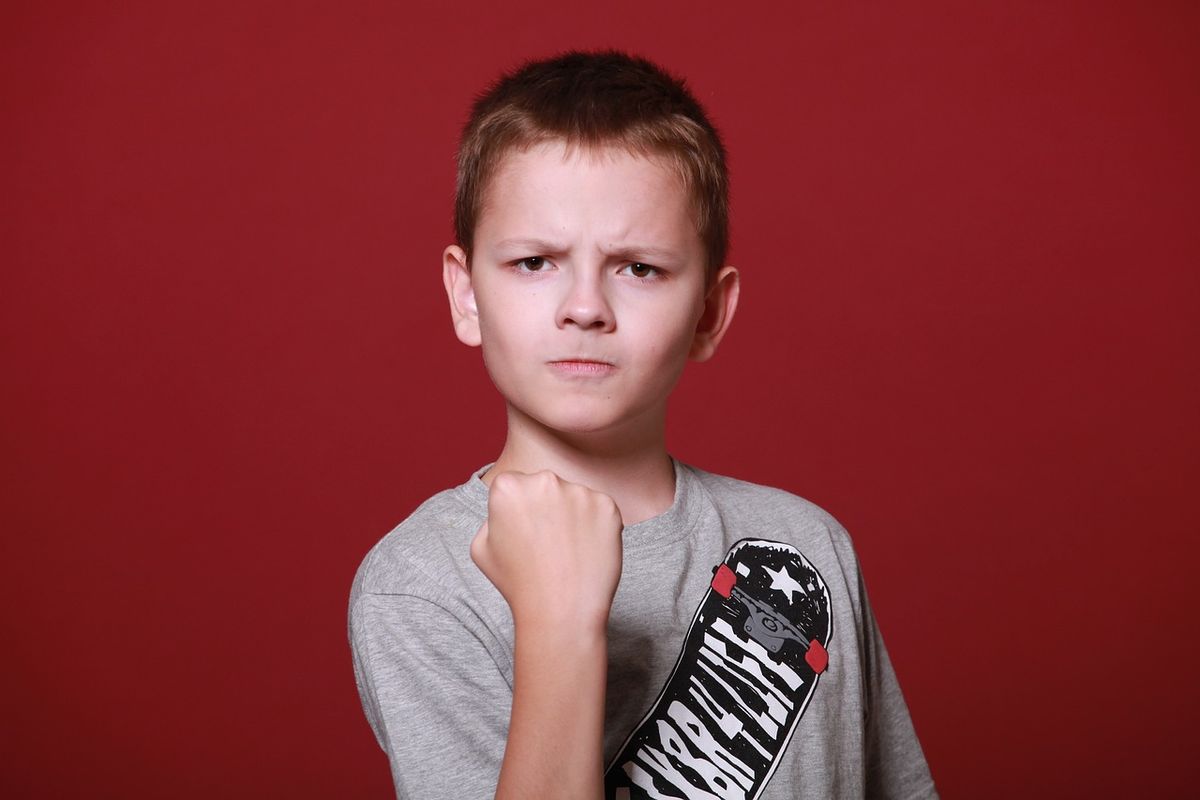
An uncontrolled child, throwing things in a row, started hitting me, falls on the floor and contorts like an eel whenever something doesn't go her way. Immediately, she bangs her head against the wall or the floor, starts screaming like a wounded pig... you get the idea.
Sound familiar? Up to 1.5-2 years, and for some lucky ones, a bit longer, a child is just a child, everything as the parenting books say. Somewhere along the line, something goes wrong, as expected. When there's a clear ban parents understand, like not buying a crucial item or not getting the mega ice cream, but when a child's straw is broken, and there are twenty more around, and she insists on gluing this particular one, but it's not fitting, and she's screaming her lungs out, nothing can console her, it's a real puzzle! And these situations happen more and more. What to do about it is not clear. The child wants one thing, it doesn't work, and immediately, it's a cry, a fight, biting, throwing, kicking, someone gets a black eye, someone a swollen lip, soup all over the kitchen, and the cat is considering changing owners or moving to the street.
So, what happened to this sweet child? She's growing, developing. But when it comes to dealing with emotions, with things not going her way, with wanting one thing and getting another - she doesn't have that experience. She needs guides, buffers between her and what's happening around her - parents and other adults. Their job is to comment, name, comfort, show how to express emotions differently, not to condemn or punish for how she's expressing herself now, because she doesn't know any better, and to handle their emotions. After all, adults activate their memories, physical reactions, prohibitions against merging, crying, wanting. It's essential to track them and separate them from your own child.
Also, at this age, willpower starts to show up. "I want, I will, I can." Not everything the child does is willingly following the adult's desire; it shows she has the right to her own view of the situation. Here, parents need to be sensitive to these sprouts of individuality, to give them space and at the same time maintain their position in the hierarchy. Somewhere, prohibit and gently console, let it be her way, find a compromise. The main thing is a caring adult position that sensitively responds to the child's needs. Not everything the child wants is a need, and not everything needs to be satisfied at once. When deciding to refuse the child, the responsibility always lies with the adult, including in consoling, explaining, naming feelings, which is called mentalization, so that the child understands that everything happening is not her fault, but the way the world is built. You can't get everything here and now, but the support of a loved one is always there.
Regarding children's explosive reactions, it can all be summed up as frustration coming out through aggression. Frustration as an emotion is crucial in our lives because it pushes us to take action - go to work, get food from the fridge, play, build with Lego, and much more. It excites us to satisfy our needs. When a need is unmet or something doesn't go as planned, in small, immature children or even in adults with uncontrolled impulses, frustration erupts in an aggressive impulse - it seeks an outlet. The tension needs to be released. Someone cries, which is a great way, someone fights, bites, then cries, which is also normal, just not very pleasant for the bitten one. So, it's worth redirecting the child in these impulses and providing space for an outlet. Not suppressing, not stopping the emotion's release but showing alternatives. It's preferable to do this not at the moment of the outburst but beforehand, as a preventive measure. Active games, construction, lots of physical contact, wrestling, drawing, sculpting can help.
If the explosion has already happened, safety comes first - a calm adult consoles the child by taking her away from danger, preventing hits, not letting her bang her head, naming the emotion briefly, or initially just instructing comfort if the child is not ready for verbal contact in the first few minutes. Physical contact, if the child goes into your arms or being near if the child is not ready initially. No scolding, no punishment. Understand the child's emotion and the fact that she can't handle it. Take her away from the crowded place or room. If the child comes into your arms, rocking calms and activates the parasympathetic nervous system for both the adult and the child. If the child is screaming, throwing, hitting - take control together - roar together, throw soft toys, pillows, hit a pillow, and show how to release the impulse safely together. Turn everything into a game; if the incident is too powerful, "Mommy tiger will now catch the tiger cub and roar loudly" - if the child isn't afraid of roaring.
The child's behavior changes can be frightening for parents. It's unclear what to do. The first step is to see the cause and emotion behind it. The child's need. What is she trying to say with this? Then think about how to give space to these emotions, not to stop it but to redirect it so that it doesn't harm the child. Parental anxiety may initially paralyze and seemingly not find a way out, but in reality, it can be a resource and help overcome the situation. Try to separate your emotions from the child and look at the situation from the side, providing more contact.
